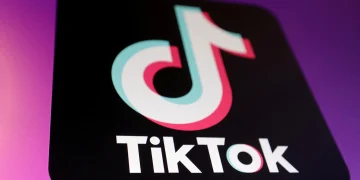The social media giant joins the passwordless revolution, but there’s more to the story than meets the eye
Soon, those password headaches will be ancient history. Facebook is rolling out support for passkeys on its mobile apps, joining a quiet revolution that’s about to change how we think about online security forever.
But here’s what most people don’t realize: this isn’t just about making login easier. It’s about fundamentally reimagining our relationship with digital identity.
The Password Problem We’ve All Been Ignoring
Let’s be honest: passwords are broken. They’ve been broken for years. We’ve just gotten really good at pretending they work.
Consider these sobering statistics: The average person has over 100 passwords to manage. 65% of people reuse passwords across multiple sites. And “123456” remains the world’s most popular password in 2025, followed closely by “password” and “123456789.”
It’s not that we’re stupid. It’s that we’re human. Our brains simply weren’t designed to remember hundreds of unique, complex strings of characters. So we take shortcuts. We reuse passwords. We write them on sticky notes. We use our pet’s name followed by our birth year and call it “secure.”
Meanwhile, cybercriminals are having a field day. Password-related breaches cost businesses over $2 billion annually. Identity theft affects 1 in 15 people each year. And those numbers are climbing.
Facebook knows this. Meta knows this. Every tech company knows this. The question isn’t why they’re moving to passkeys; it’s why it took so long.
What Makes Passkeys Different (And Why You Should Care)
Imagine never typing a password again. Not because you’re using a password manager (though those help), but because passwords simply don’t exist in your digital life anymore.
That’s the promise of passkeys.
Instead of something you know (a password), passkeys use something you are (your fingerprint or face) or something you have (your device). When you want to log into Facebook, you’ll simply:
- Tap the login button
- Authenticate with your device (fingerprint, Face ID, or PIN)
- You’re in
No passwords to remember. No passwords to steal. No passwords to phish.
But here’s the clever part: Behind the scenes, your device is using cryptographic keys. Think of them as incredibly complex, unique passwords that you never see or touch. Your device holds a private key that never leaves it. Facebook holds a public key that’s useless without your private one. Even if hackers breach Facebook tomorrow and steal every public key, they can’t use them to access your account.
It’s like having a lock that only opens with your specific key, except the key is mathematically impossible to duplicate and changes every time you use it.
The Hidden Genius of Facebook’s Timing
Facebook isn’t the first to adopt passkeys. Apple, Google, Microsoft, and even Meta’s own WhatsApp beat them to it. So why does Facebook’s adoption matter so much?
Scale changes everything.
With over 3 billion active users, Facebook is the digital town square for nearly half of humanity. When Facebook adopts a technology, it doesn’t just legitimize it; it forces the entire internet to pay attention.
Think about it: How many websites let you “Login with Facebook”? How many apps use Facebook for authentication? By supporting passkeys, Facebook isn’t just securing its own platform. It’s creating a ripple effect that will pressure every connected service to step up their security game.
There’s also perfect timing at play here. Just last month, Google announced that passkeys had prevented over 1 billion potential account compromises in 2024. Microsoft reported a 99.9% reduction in account takeovers for passkey users. The technology has been battle-tested at scale, and it works.
The Challenges Nobody Wants to Talk About
But let’s pump the brakes on the utopian vision for a moment. The Electronic Frontier Foundation raised a critical point that everyone seems to be glossing over: passkeys don’t fix human nature.
If you’ve memorized your Facebook password (and let’s be honest, you probably have), you might still type it into a phishing site out of habit. Passkeys protect you from fake login pages because they won’t trigger on the wrong domain, but only if you exclusively use passkeys.
This creates what security experts call the “transition problem.” As long as Facebook supports both passwords and passkeys, attackers will simply target the weaker link. It’s like installing a state-of-the-art security system on your front door while leaving your back door unlocked.
Other challenges include:
- Device dependency: Lose your phone? You’ll need backup methods to access your account
- Cross-device complexity: Using Facebook on your friend’s computer becomes more complicated
- Digital divide: Not everyone has a device with biometric capabilities
- Privacy concerns: Some users worry about linking their biometric data to online accounts
Facebook says they’re addressing these concerns by maintaining multiple authentication options and allowing users to register multiple devices. But the devil will be in the implementation details.
What This Means for the Future of the Internet
Facebook’s passkey adoption is more than a security upgrade. It’s a glimpse into our passwordless future. Here’s what I predict will happen next:
The Domino Effect (2025-2026) Every major social platform will rush to implement passkeys. Instagram (also owned by Meta) will be next, followed by TikTok, Twitter/X, and LinkedIn. By the end of 2026, typing passwords on social media will feel as outdated as dialing up the internet.
The Enterprise Push (2026-2027) Businesses will mandate passkey adoption for employee accounts. The cost savings from reduced password resets and breach prevention will be too significant to ignore. Your work login will likely go passwordless before your personal accounts do.
The Banking Revolution (2027-2028) Financial institutions, always conservative with change, will finally embrace passkeys as the standard. The combination of regulatory pressure and customer demand will make passwords a liability no bank can afford.
The Password Funeral (2030) By the end of this decade, passwords as we know them will be effectively dead for mainstream consumer services. They’ll exist only in legacy systems and as emergency backup options.
What You Should Do Right Now
While we wait for Facebook’s passkey rollout to complete, here’s how to prepare for the passwordless future:
- Start using passkeys where available
- Enable them on your Google account today
- Try them with Microsoft or Apple services
- Get comfortable with the technology before it’s everywhere
- Upgrade your devices if needed
- Ensure your phone has biometric capabilities
- Update to the latest operating system
- Consider a hardware security key as backup
- Don’t abandon good security practices yet
- Keep using unique passwords for now
- Enable two-factor authentication everywhere
- Stay vigilant about phishing attempts
- Educate others
- Help less tech-savvy friends understand passkeys
- Share this article (shameless plug, I know)
- Be patient with the transition period
The Bottom Line: Progress Is Messy, But Necessary
Facebook’s move to passkeys isn’t perfect. The transition will be messy. Some users will be confused. Edge cases will cause frustration. Tech support calls will spike.
But here’s the thing: Every major security advancement faces these challenges. Remember when two-factor authentication seemed complicated? Now it’s second nature for millions of users.
Passkeys represent something bigger than a technical upgrade. They’re an acknowledgment that the old way of doing things, expecting humans to be perfect password machines, has failed. Instead of fighting human nature, we’re finally building security that works with it.
The question isn’t whether passkeys are perfect. They’re not. The question is whether they’re better than what we have now. And on that front, the answer is an unequivocal yes.
So the next time you forget your Facebook password, don’t curse at your screen. Smile instead. Because soon, forgetting passwords won’t be a problem. It’ll be the whole point.
What’s your take on the passwordless future? Are you ready to say goodbye to passwords forever, or do you have concerns about the transition? Drop a comment below. I’d love to hear your thoughts.
And if you found this analysis helpful, consider following for more tech insights that go beyond the headlines.
This article was rewritten with the aid of AI. At Techsoma, we embrace AI and understand our role in providing context, driving narrative and changing culture.














